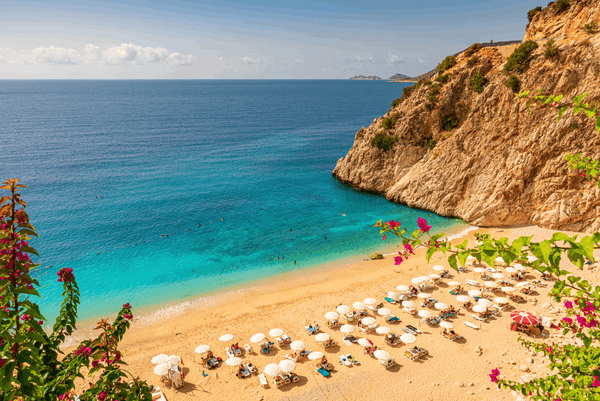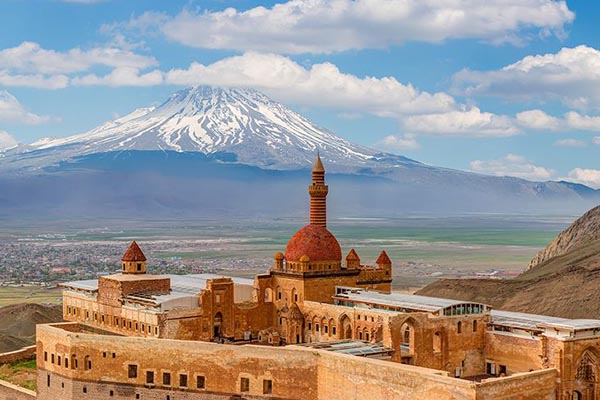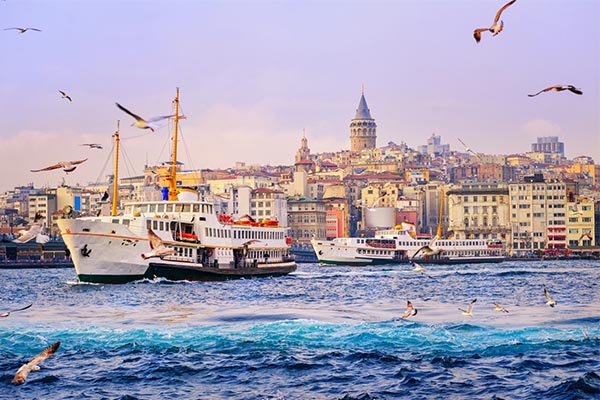choose the best
Pergamon TOUR

Detail about tour
Pergamon TOUR tour explanation
Starting From 300€/2pax (Prices go down as the number of people increases)
Pergamum is about 70 miles (113 km) from the center of Izmir and is in the modern town Bergama. Situated atop an acropolis 1,800 feet high, it is surrounded by the Selinus River to the west and the Cetius River to the east.
After the death of Alexander the Great, his general Lysimachus stored his immense treasury in a citadel on the acropolis, which was later entrusted to Philetaerus. Following Lysimachus’s death, Philetaerus became the ruler of Pergamum and established a powerful kingdom. His successor, Eumenes I, and Eumenes’ son, Attalus I, further adorned the city with magnificent sculptures and artworks.
Highlights of Pergamum:
- The Altar of Zeus: Built around 170 BC by Eumenes II, it was one of the largest altars of its time. Its detailed friezes are now preserved in the Pergamon Museum in Berlin.
- Temple of Athena: The first Hellenistic temple on the acropolis.
- Library of Pergamum: Known as the second-largest library of antiquity after Alexandria, it reportedly housed 200,000 volumes. When papyrus exports from Egypt were banned due to rivalry, Pergamum invented parchment as an alternative writing material.
- Temple of Trajan: The only Roman structure on the acropolis, this imperial temple stood as a symbol of Roman influence.
- The Red Basilica: A massive Roman temple built during Hadrian’s reign, dedicated to Egyptian deities. Its structure, featuring pools and domes, created an atmosphere evoking the grandeur of the Nile River. Over time, Pergamum faced attacks from Arabs and later Turks, becoming part of the Ottoman Empire in 1345. It’s located downtown modern Bergama, 1.5 kms from Acropolis.
- The Asclepion: It was initially founded in IVth century BC. as a medical treatment center of Pergamon and dedicated to the God of Medicine; Asclepius, hosted Traianus, Hadrianus, Marcus Aurelius, Caracalla and was enlarged in the second century A.D. During the reign of Valerianus I. (253-260 AD) Asclepius was vastly damaged by an earthquake. Later on The Temple of Asclepius was altered to a Church. Along with its Via Tecta (The sacred road), Nymphaion, Library, Theatre, Latrines, Cryptoporticus (underground pedway), Telesphoros (Treatment building), Asclepius remains a highlight for Ancient Greco Roman Medicine history. It’s located on the other side of downtown modern Bergama, 4 from Pergamum Acropolis.
TouR info
We pick you up from the cruise ports, hotels, airport or wherever you want. Pergamum Acropolis takes 2-3 hours slow walk and going up some steps slowly, depending on your interest. Tour includes visits to the acropolis, the Red Basilica and the modern town of Bergama. Depending on your time availability Asclepion can also be added. We arrange Mercedes vans or Sprinter vans with AC. and experienced drivers for all our services. Tasting local cuisine is highly recommended.
- Transportation service with AC
- Local lunch
- Tickets for the Acropolis and Red Basilica
- Professional guiding
- Cable car fee for more than 4 people in the group
- Drinks during the lunch and coffee break
- The tickets of other museums in the region
- Tips; if appreciated


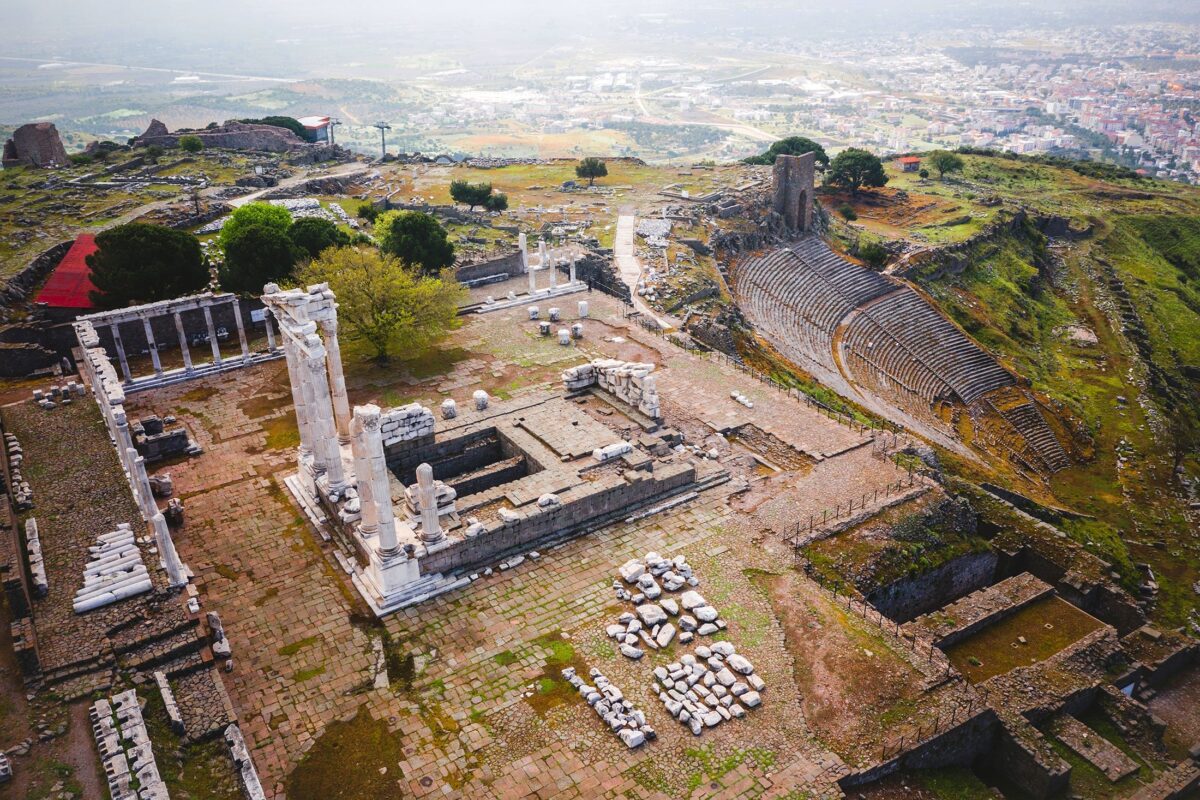
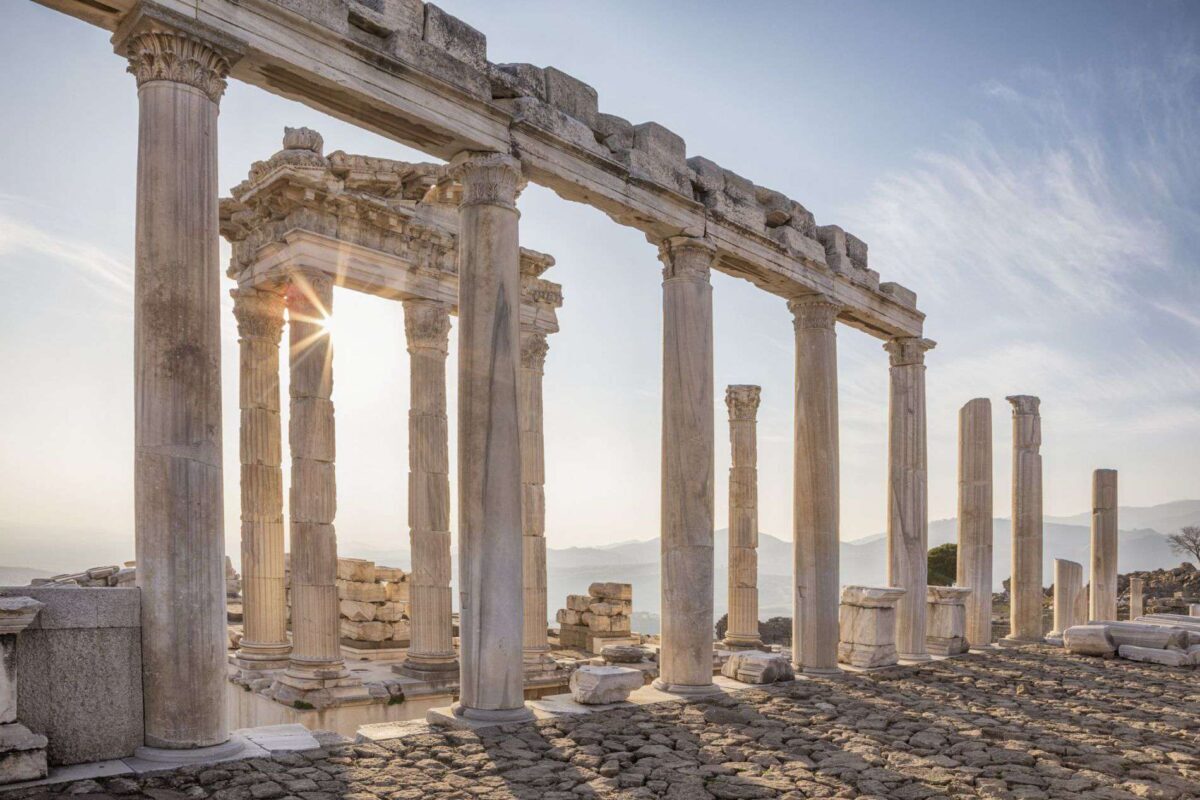
need to know
Rules & Tours
Türkiye is a vibrant country rich in history, culture, and breathtaking landscapes. To make the most of your visit while respecting local customs and traditions, it’s essential to follow some basic guidelines. This guide will help you navigate the country with confidence and courtesy.
- Explore Historical Sites: Türkiye is home to stunning landmarks like Ephesus, Pamukkale, and Cappadocia. Always respect these sites by following the rules and refraining from touching or climbing on ancient structures.
- In Turkiye emergency number is 112
- Taste the Cuisine: Enjoy local delicacies like kebabs, baklava, and Turkish tea. Visiting authentic restaurants and trying street food is highly recommended.
- Use Public Transport: Türkiye’s public transport, including buses, metros, and trams, is efficient and affordable.
- Learn Basic Phrases: Knowing a few Turkish words like “Merhaba” (Hello) and “Teşekkür ederim” (Thank you) can go a long way in showing respect.
- Do not pick up ancient stone pieces, even if they look like small useless marble or brick from the sites! They will definitely be confiscated from you and you might be detained at the airport before your flight.
- In Istanbul and touristic bazaars, shop assistants of the vendors invite you to their shops. If they attempt to hustle you, just ignore them and do not communicate with them!
- Please be careful in crowded public transportation just like any other metropolitan cities in Europe for pickpocketing.
- Do not drink tap water, purchase bottle water for drinking.
- Avoid Loud Behavior: Respect local customs by keeping noise levels low in public places, especially around mosques and residential areas.
- Do Not Litter: Littering is frowned upon. Dispose of trash responsibly, particularly in natural and historical areas.
- Don’t Bargain Aggressively: While bargaining is common in markets, always do so politely without being too forceful.
- Avoid Political Discussions: Steer clear of controversial topics, especially regarding local politics or sensitive historical events.
- Plan Ahead: Book tours to architectural landmarks, popular restaurants, and hotels in advance to avoid last-minute hassle.
- Respect Dress Codes: When visiting religious sites, dress modestly. Carry a scarf or shawl to cover shoulders and head if required.
- Stay Hydrated: Türkiye can get quite hot, especially in summer. Drink plenty of water and wear sunscreen.
- Ask for Help: Locals are generally friendly and willing to assist tourists. Don’t hesitate to ask for directions or recommendations.
- Transport Etiquette: Whether using taxis or public transport, respect the vehicles and keep them clean. Give up your seat to the elderly or disabled as a sign of courtesy.
- Dining Out: When dining in restaurants, tipping is customary. Around 10-15% of the bill is standard.
- Photography: Seek permission before photographing people, especially in rural areas or during cultural ceremonies.
- Shopping: Visit local bazaars for unique souvenirs, but always remain respectful in your interactions with vendors.
